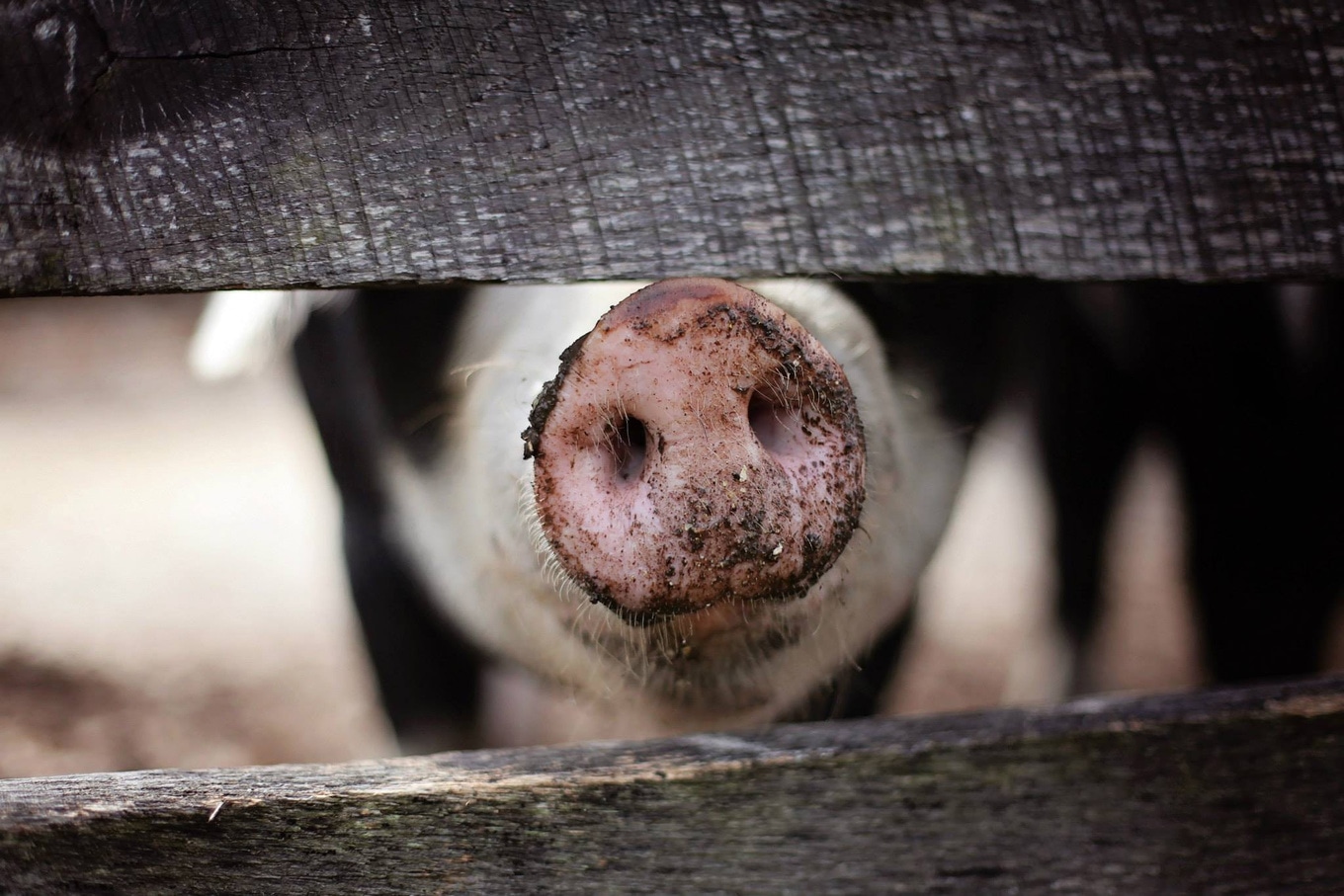A pork industry group representing Canada’s largest pork-producing province is being asked to correct radio ads that misrepresent pork products as being “healthy.” The Canadian Food Inspection Agency (CFIA) is taking enforcement action on the matter after the misleading ads by Manitoba Pork were reported to the regulatory agency—which oversees food, plants, and animals in Canada. The ads have been running on radio broadcasts of Winnipeg Goldeyes baseball games claiming that “thick, juicy pork chops,” “tasty pork tenderloin,” and “crazy good pork burgers” are a “healthy and affordable protein.”
According to CFIA guidelines, food manufacturers and brands cannot make false claims to sell food products to consumers. Its guidelines state that the word “healthy” refers to the healthy eating patterns recommended by Canada’s Food Guide, and such claims must be in line with the food guide’s recommendations. Describing a food as “healthy” when it doesn’t meet the food guide recommendations can be considered misleading.
“After follow-up with Manitoba Pork and review of the ad, it was identified that an instance of their use of the term ‘healthy’ does not meet requirements as per CFIA requirements,” the CFIA said in an email. “The company will be required to take appropriate action in accordance with CFIA standard timeframes for correction.”

Canada emphasizes plant-based protein
The Canada Food Guide was dramatically overhauled in 2019, including its healthy eating recommendations. The new food guide completely removed the previous dairy and meat protein food groups, and it does not include any recommendations for eating pork products. Instead, the food guide now emphasizes a plant-based diet. The dinner-plate graphic that replaced the previous rainbow of four food groups features a plate half-full of brightly colored vegetables, with the other half emphasizing equal portions of proteins—particularly plant-based proteins such as walnuts, tofu, and beans—and whole grains such as quinoa and brown rice.
“Among protein foods, consume plant-based more often,” the Canada Food Guide outlines. “The regular intake of plant-based foods—vegetables, fruit, whole grains, and plant-based proteins—can have positive effects on health,” it states, linking plant-based diets to lower risks of cardiovascular disease, colon cancer, and Type 2 diabetes.
The World Health Organization’s International Agency for Research on Cancer has also said that red meat, including pork, is a probable human carcinogen.
“With more people turning away from meat and giving healthier, tastier plant-based alternatives a try, it’s no surprise that the pork industry has resorted to misleading ads in an attempt to dupe people into buying bacon and pork chops,” Camille Labchuk, Executive Director of Canadian animal law advocacy organization Animal Justice, told VegNews. “We’re pleased that authorities aren’t letting Manitoba Pork get away with its campaign of false advertising.”

Is bacon healthy?
Traditional bacon, which is a common pork product, is cut from the belly of a pig. To make bacon, the meat is cured using salt and nitrates, a type of compound used in meats as a preservative. Studies have associated processed meats such as bacon with a number of health conditions, including breast, lung, liver, and colon cancers. A number of studies have suggested that red and processed meat consumption are linked to a higher risk of heart disease and diabetes. Bacon is also high in salt, and too much salt can lead to high blood pressure.
Additionally, a study conducted on the health and environmental effects of foods found that eating just one animal-based hot dog—another processed pork product—could cost consumers 36 minutes of healthy life. The study, which was published last year in the journal Nature Food and conducted by the University of Michigan’s School of Public Health, also identified environmentally sustainable foods that promote health. In the study, fruits, cooked grains, ready-to-eat cereals, and non-starchy mixed vegetables resulted in the largest gains in lifespan while hot dogs, burgers, breakfast sandwiches, and sugary drinks were linked to the greatest reduction in lifespan.
Similarly, eating processed meat can increase the risk of coronary heart disease by 18 percent, according to a study published in the journal Critical Reviews in Food Science and Nutrition. The study, led by Oxford University researchers, concluded that daily consumption of just 50 grams of processed meats, such as bacon, ham, and sausage, increased the risk of coronary heart disease by 18 percent. Consuming 50 grams of unprocessed meat, such as beef, lamb, or pork, increased risk by 9 percent.
Plant-based meats such as vegan bacon, on the other hand, tend to be lower in saturated fat and calories compared to their traditional counterparts. They tend to be high in sodium, but are generally better than animal-derived meat when eaten in moderation, as part of a balanced diet.
For the latest vegan news, read:
New Vegan Desserts Result From Starbucks’ Coffee-Recycling Initiative
50 Percent of Supplements Contain Hidden Animal Byproducts
Nutritional Yeast to Become a $1 Billion Industry By 2032
JUMP TO ... Latest News | Recipes | Guides | Health | Subscribe









